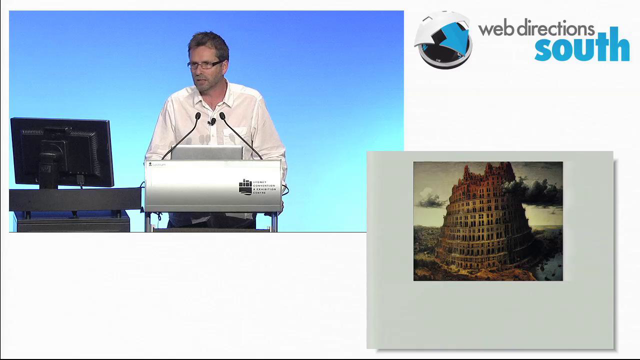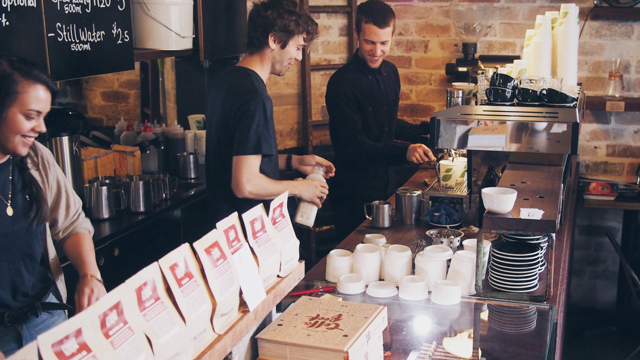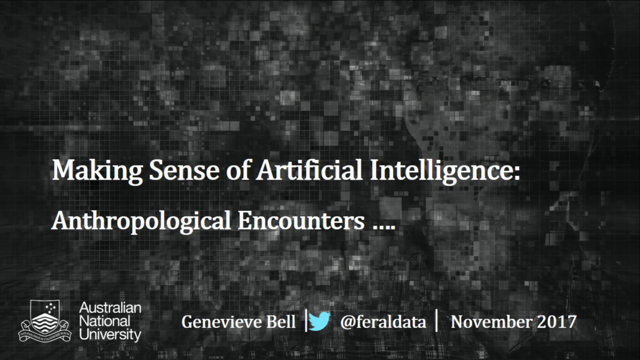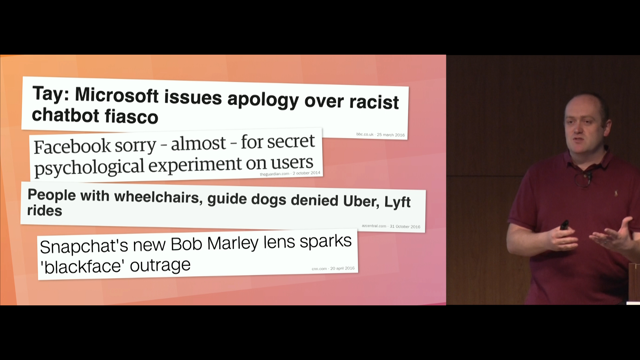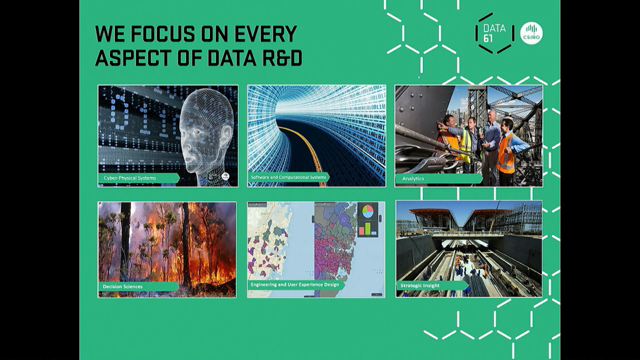Awakening the better angels Part 3. What’s to be done?

Exploring Meritocracy in Social Media
Nicholas Gruen discusses the concept of meritocracy within social media platforms, contrasting it with Wikipedia's model, which he describes as both democratic and meritocratic. He highlights the challenges of current social media systems that prioritize profit over merit, leading to what he calls a "shout ocracy." Gruen suggests the potential of bridging algorithms to foster better discourse by amplifying voices respected by those with differing views. He also mentions Jack Dorsey's view of social media as a public good and suggests that cultural institutions could help build a more democratic middleware.
Conversation with Vint Cerf on Social Media Regulation
Gruen shares insights from a conversation with Vint Cerf, a principal engineer at Google, about the regulation of social media. While acknowledging the importance of regulation, Gruen proposes the idea of incubating new models of social media that prioritize high-quality discussion. He recounts how Cerf found the idea intriguing, particularly the notion of Google developing and selling a platform for fostering meaningful dialogue within corporate environments.
Reviving Ancient Democratic Practices
In this segment, Gruen presents a video exploring historical democratic practices, such as the use of lotteries in ancient Athens to select citizens for governance roles. He advocates for a modern adaptation of this system through a standing citizen assembly chosen by lottery, which could deliberate on legislative issues alongside traditional governmental bodies. Gruen argues that this approach could hold politicians accountable and ensure that the public's voice is more accurately represented in governance.
Q&A: Challenges and Opportunities in Modern Democracy
The session transitions into a Q&A where audience members question the feasibility of Gruen's proposals. Topics include the historical limitations of Greek democracy, the potential for citizen assemblies to become toxic environments, and the role of networks in empowering individuals. Gruen addresses these concerns by emphasizing the importance of involving everyday citizens in governance and fostering environments where diverse opinions can coexist and lead to constructive dialogue.
Scaling Deliberative Democracy
Gruen responds to questions about scaling deliberative democracy from local to national levels. He critiques the current use of citizen assemblies as temporary advisory bodies and advocates for their integration into the constitutional framework. Gruen argues that empowering citizens to protect rights and participate in governance can counteract elite dominance and ensure a more equitable democratic process. He envisions a system where citizens, rather than elites, safeguard democratic integrity and human rights.
If you really hated my first talk, you must be pretty sick of me by now, but this is it, this is the last time you'll have to sit through what I have to say, and I've got slightly more time According to the schedule, which went out the window long ago.
So I brought along an additional video I could show you, and that will still leave a reasonable amount of time for questions.
So this is relevant to questions about the internet and is also relevant to something you'll, the very next session.
So that has emboldened me to show you this video, which starts now.
Our last video showed how Wikipedia isn't just radically democratic, it's radically meritocratic.
Wikipedia's democracy isn't swamped by vandals and trolls because of what I call it's middleware, or if you like, it's merit wear.
To gain authority first, you slowly earn your stripes.
Social media is very democratic too, open to anyone, but it doesn't reward merit.
Instead, platforms chase profits both stoking rage.
So authority goes to those who shall the loudest.
It's a shout ocracy.
But how could we build a meritocracy inside social media?
It's easier with Wikipedia because it just reports the truth, so it's sublimely fluent regarding the facts about Donald Trump, it doesn't even try to tell us if he's any good.
Though we should be able to agree on how the world is, what matters most is how it ought to be.
There we want different views.
Then once we understand each other, we can decide on someplace we can live with.
We can build algorithms to help build bridges between different views based on their merits.
One algorithm that does that would amplify contributors.
Who are best thought of by those who disagree with them?
No wonder algorithms like that are called bridging algorithms.
By building bridges between different views, they'd help rebuild the middleware of democracy.
Trouble is building bridges doesn't increase profits.
That's one reason why Twitter founder, Jack Dorsey thinks social media is a public good, which should be managed for social benefit, not private profit, but that's a long way off.
Meantime, there's a world of institutions in the arts, education, research driven by cultural missions rather than profit like galleries, national broadcasters, universities, they should also help build the middleware of democracy.
By pioneering pro-social merit, promoting social media.
Even large companies run employee social networks, and they too have an interest in fostering collective sense making within their walls.
They too live or die by building the middleware, the merit wear of good, disciplined discussion within their workforce.
And by doing that, they'd build a better future for us all.
I finished that video after I had a conversation with someone many in this room will know of Vince Surf who works at Google, and it was one of the principal engineers working on the internet and we, he's, spent some of his time trying to, he's spent some of his time trying to answer that question, I help build social media.
Should I be trying to do something about fixing it?
And we had a good conversation, but he kept coming back to questions of how can we regulate social media?
Now, I'm not against regulating social media, but I think, but that's playing the old game in a sense.
And what I'm trying to say is that if we could incubate what it could be like you at least have something to, something concrete to look at while you are, if you ever get the political power and the capability of actually taming the beast that's out there, wrecking, world.
Anyway towards the, and I, the reason you see the Google logo appear on the second corporation that I instance in that video is that towards the end of the conversation, he said, "Hey, I think you're onto something." I, said to him "Google has an interest in high quality discussion, dialogue, debate, argument within its walls, and it could apply itself to building something like that, and then it could sell it to other corporates." And he said, "that's a very interesting idea.
We must stay in touch." I was very pleased about that and he got a logo in my video, so that's the backstory.
Anyway.
So I will go on to the final video that I came to show you, and then we will have some time for questions, even if John tries to stop us.
In these final two videos, we look at institutions invented centuries ago to guard against the very problems we have today.
In ancient Athens, 50 citizens around the city, preparing agendas for the assembly of the people and implementing its decisions.
To prevent a lead domination, the 50 had to be just like other citizens.
So they weren't elected but chosen by lottery, as we choose juries today.
As Aristotle put it, real democracy meant citizens taking turns in governing and being governed.
He'd think Our system today is oligarchic dividing us into politicians and bureaucrats who govern, and we the people who are governed.
We can make politics fit for human habitation again by putting everyday people like you and me back in the center.
We need a standing citizen assembly chosen by lottery.
In our system, laws are passed when they win a vote of the lower and upper house of the legislature and the ascent of the head of state, a monarch or president.
So I want the citizen assembly to insert itself into that process, voting on any issue the other houses do.
Even without any formal power they could meet, deliberate and vote on the same issues before the legislature.
Then we could all see any difference between politicians' votes and the considered opinion of the people.
This would make it harder for politicians to obey their parties and funders ahead of us.
We'd be here all day waiting for our elected representatives to create such a house.
So let's get it started with private donations.
Once established, it could start building its role in our constitution.
It could seek permanent government funding like the other houses.
I had to see it campaigned for real power in holding elected representatives to account.
Let's say Congress kept dragging its feet on stronger background checks for guards.
The house of citizens could deliberate and vote on the issue themselves.
If they disagreed with Congress's stance, they could shame them and call for them to vote again.
This time by secret ballot.
And they could campaign to have that power legislated.
Those arrangements would've made Britain's Parliament more responsible in approaching Brexit.
Australia's parliament more serious about pricing, carbon emissions, and America's Congress more responsible on gun control.
They'd help America return to its tradition of deals across the aisle to solve its problems rather than create new ones.
As we saw more of the people's branch, it could seek other powers to ensure the independent appointment of judges and senior officials powers to ensure that electoral boundaries are fair as ordinary folks do right now in the Michigan Independent Citizens Redistricting Commission.
We could do this in any developed country.
We can do it now.
Then ordinary people like you and me would once again become integral to the checks and balances we need for real democracy.
Government of the people, for the people, by the people, not to perish from the earth.
There you go.
So we've got some time for questions.
(John) I'll grant that.
Alright, thank you Nicholas.
So it's the least we could do.
All right, I've got a question here.
(Audience member) So the problem with Greek democracy was it was run by the citizens, but not everyone was a citizen.
Women weren't.
They notoriously had a lot of slaves to do the sort of low level work, so there wasn't exactly equality in the end if you see.
The citizens are a, sort of restricted group of people who, come from a certain background.
Yeah.
So what, how, (Speaker) you caught me out.
You caught me out proposing that we have a democracy, that we bring back slavery and that our democracy is only involves male citizens.
(John) Hang on.
That's Elon Musk's position, isn't it?
(Speaker) Yeah.
Yeah that's the thing.
The past was different.
We can take from it what we want to take, and in so far as the telling me that.
Makes it harder for me to tell my story, then I guess that's really because the slaves did the work and the women did the work.
So the question is, do we have a similar, do we have a society?
Do we have an economy where we can do the work and everyone can have a vote?
And I think the answer to that is yes.
We can see that right now.
That's the system we have right now.
Everyone's got the vote.
Adults have got the vote.
Question.
(Audience member) So yeah, my question, about the makeup of this House of Citizens.
Yeah.
So you've got your house of reps and everyone's got their own network.
They've got the people working for them.
(Speaker) Yeah.
The big problem I have with what you're proposing.
Is that if you just put individuals into the mix, it'll turn into a Google or a unity toxic forum where people start to form, the toxic behaviors that Google's not gonna productize what they've got because they've got too many problems.
(Speaker) Hang on.
You, so you, is Google, are you referring to the first video I showed in this session?
(Audience member) Yeah, I'll take that.
Let me retract that.
(Speaker)Okay.
Confusing to the question.
The question is, rather than saying individuals in this House of Citizens, what if citizens could bring their own.
Mini networks like actually allow teams to be part of citizens 'cause it just strikes me that if you are saying everyone's gotta start building their networks from scratch as individuals, they're not gonna be as empowered as if people who are already in teams are able to join the House of Citizens, for a period.
(Speaker) Yeah the people in teams of, that's what runs our current system.
So they're doing pretty well.
It's the people who don't have teams.
That this, that I'm trying to involve in our democracy.
(Audience member) Everyone has teams.
Everyone's got their networks.
(Speaker) Yeah.
(Audience member) So I'm just wondering if the, the citizens themselves could be empowered?
(Speaker) The citizen, if you are on, if you are on a person chosen at random and you are in this, in this body, you will have your team and you'll talk to them and you'll say at the next barbecue or whatever you or, the next dinner with your family.
We had to, we, in, in, 15 minutes time, Anthony Albanese wants us to vote on social media.
So the networks are there.
If we try to start with teams, then we end up with a body that is not representative.
We end up with a body of people who are, have teams already, and that's activists and that's how we run our democracy right now.
We have activists representing the mining industry.
We have a activists attacking the mining industry.
They've each got their teams.
That's, I'm not trying to paint a picture where you have frictionless democracy, but I am trying to say that, that's actually the way we all think about politics now and it's highly toxic and we need to socialize and federate these things that are organized in teams and then whisk across the attention of the hoi pallo of the people using comms directors.
That's roughly the system we have now, and when you bring people together.
To address your, the point you introduced and then withdrew.
They certainly don't coagulate into a group, into group think absolutely the opposite.
What happens is what happened with Chris and Finbar, which is they stay well.
Chris and Finbar is a remarkable example because Finbar changed his mind.
What is more typical.
Is that people don't change their mind very much.
They compromise to some extent and they, but the massive difference, and I wish I could show you a film that just shows this so strongly, but it hasn't been released yet.
They go from despairing of democracy and despairing of all these completely crazy people who either think vaccines work or these other crazy people who think that they don't work and they don't change their mind that much.
They do it much more than politicians who never change their mind 'cause they're not there to have minds.
They're there to carry a vote.
They get to love each other.
They and they, and the immense relief and tears that they feel that they actually do believe in democracy because this guy down the road who doesn't agree with me and believes in lower taxes and personal responsibility and a whole bunch of other things, he's not a bad guy.
He's not a bad guy.
I might go and talk to him one day and I'll be buying my building materials from him.
Just immensely powerful.
The exact opposite of what our system does.
(John) All right, Mel, you had a question.
(Audience member) Thank you.
Thanks, so much Nicholas.
I just wanted to raise deliberative.
Democracy has been happening in Australia already.
It's been very successful.
You showed the, the Irish example it's happening in Spain.
There's new democracy who are here and change politics, organizations who have been really pushing this, and there's some really fantastic examples of this happening at a local level.
I guess the question is how do we scale that to a, federal and state and territory level?
(Speaker) That's what that video is about and this may be a secret, but new democracy runs, change politics and it sees it as one of its brands, and it sees me as another one of its brands.
Not that it's gonna say so, but it's supporting what I'm doing.
Not with money, but actually maybe with some money, but it's supportive of what I'm doing.
But it's, but it is taking a more middle of the road approach and it's supporting many of the citizen assemblies that we've seen.
And my problem with those citizen assemblies is I'm in favor of them running, but they're all.
Special purpose, finite time advisory citizens assemblies.
And as you'll see from what I'm talking about, I'm talking about this as activism from the center activism, not on behalf of some sub-community in our, in our society, but on behalf of our system, which is ailing because it has been colonized by private interests.
So, that's how we can, I think we can scale it, but we don't scale it by going and seeing powerful people and saying, this is a great idea, because what happens is they agree with you, and then nothing much happens.
And that's essentially what's been happening with citizen assemblies all around the world.
They're run, they're very successful, people say terrific, the politicians say that's wonderful.
And that this goes on and on, and it hasn't really, it's not building its way into our constitution.
So that's what I'm trying to, that's what I'm trying to do.
Okay.
(Audience member) So democracy that is defined by the vote of the majority, doesn't really work as a democracy because there's nobody, to protect the rights of minorities in the group as by shown, for example, in the recent referendum, that we had this year.
The other problem that I have with letting every citizen vote is that bunch of Australians or people nowadays get their news and updates through TikTok and social media that is not a relevant or a solid source of information.
So whatever they know is probably incorrect because of the sources that they get.
So whatever vote they have is probably also flawed as well.
Any thoughts on that?
(Speaker) Only that I believe in people's ability, I believe there are no better solutions than getting people to work out what they want.
And secondly, what you're referring to, I think, my way of putting what you're referring to regarding the tyranny of the majority is essentially what liberals did in the 19th century.
They said, we can have a democracy so long as rights are protected.
And if you look at rights being protected in the United States, they're protected by a Supreme Court that is politicized and corrupt, and they're protected by a political system, which is, which has rank gerrymandering and voter suppression going on.
And what I will show in greater detail in another video, but averted to there, was that if you put those integrity questions, those questions of rights to the people in an institution built for that, as we built juries in law, they will defend those rights and they'll defend them more dependably than an elite because as Machiavelli said, There are two types of people.
It'll pop below the people.
They just want a quiet life.
They wanna bring up their kids.
And I grande the powerful people and they are insatiable.
They will never be satisfied.
And so my grand vision is to try to rebuild what we built with modern democracy, to take the sin use of modern democracy off the elites.
And provide jury like guarantees of our rights that people can defend so long as we don't ask them to do that at the same time as voting on their electricity price.
That's what that we, that's the expectation they have Now.
We have now, if we build an institution for people to defend human rights, they will do a better job than our elites are.
3. What’s to be done?
We’ve known of democratic, merit seeking institutions that aren’t biased towards self-assertion and self-serving for over a thousand years. We should introduce them alongside existing institutions and expand their role as we gain experience with them. They bring out the better angels of our nature.

